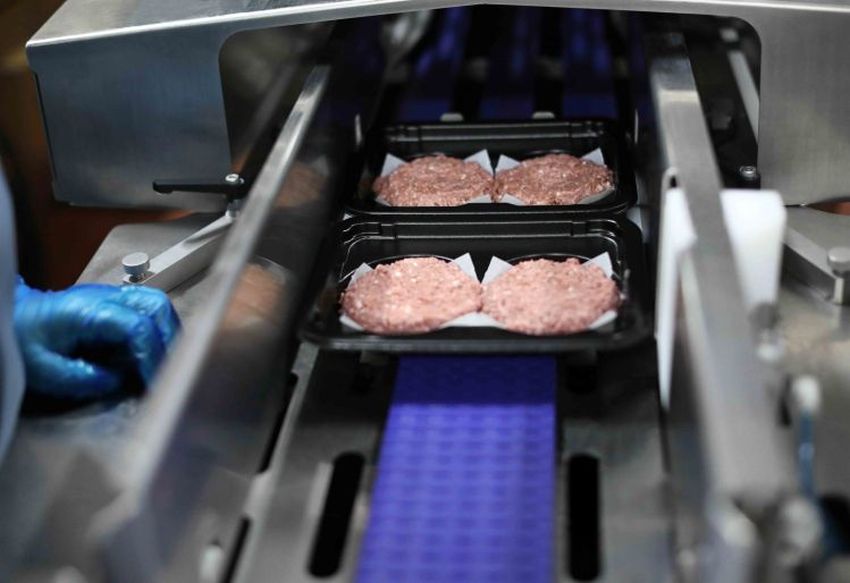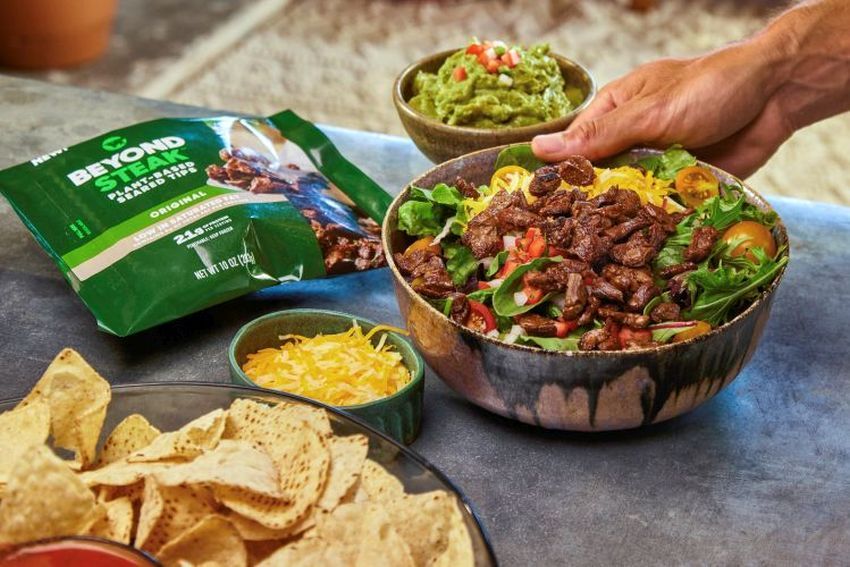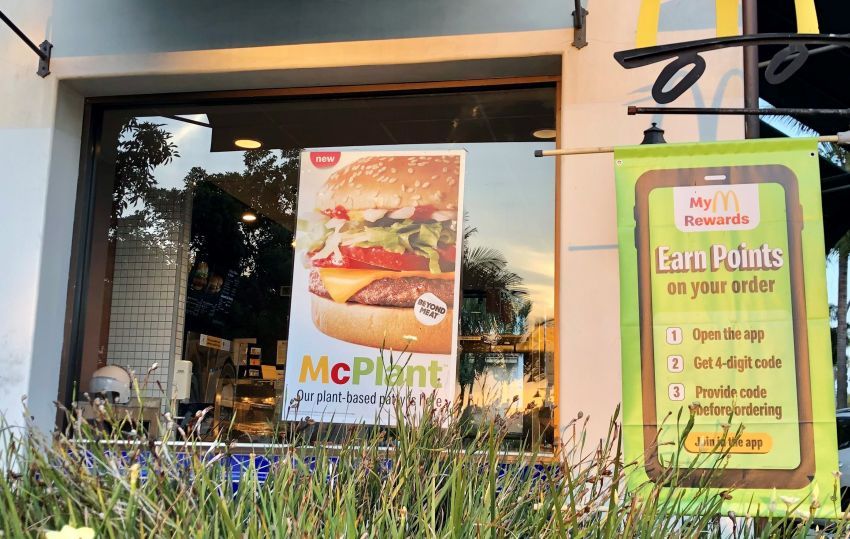- Beyond Meat is making moves to prioritize cash flow over growth after posting a net loss of $66.9 million and gross profit margins of -3.7% in the fourth quarter (Q4) of 2022, executives told analysts on an earnings call to announce its latest financial results last night.
- The publicly-traded plant-based meat company posted a 20.6% decrease in net revenues to $79.9 million in Q4 2022 vs Q4 2021.
- For the full year 2022, revenues fell 9.8% to $418.9 million with net losses of $366.1 million.
- In 2023, Beyond Meat forecasts net revenues of $375-415 million with gross margins “in the low double-digit range, increasing sequentially throughout the year.”
- The firm recently unveiled plans to lay off 20% of its workforce in a bid to achieve cash flow-positive operations in the second half of 2023.
- Its cash and cash equivalents balance was $322.5 million and total outstanding debt was $1.1 billion as of December 31, 2022.
- Beyond Meat listed on the Nasdaq stock exchange in 2019 at a share price of $46, a record-breaking increase from its IPO price of $25. Yesterday, it closed at $17.14 per share.
Transitioning from an operating model that ‘prioritizes growth above all to one that prioritizes cash flow’
Asked about cashflow on the Q4 earnings call Thursday night, CFO Lubi Kutua said the company is still evaluating options: “If it makes sense for us to do some sort of a raise and put more of a buffer on the balance sheet, we will.”
CEO Ethan Brown noted a steady improvement in gross margin during the quarter, adding: “We are transitioning our business from an operating model that prioritizes growth above all, to one that prioritizes cash flow and sustainable long-term growth.”
Moving forward, Beyond Meat has a three-pronged strategy to turn things around, he added:
- Margin recovery and operating expense reduction, dropping from eight co-manufacturers in North America in 2022 down to three, reducing exposure to underutilization or idle time penalties.
- Inventory reduction.
- Targeted discounts and more focused marketing to specific consumer demographics, expanding the frozen range.
Older consumers respond to health messaging, younger ones to climate messaging
Asked why discounting was the answer given that price cuts had not thus far delivered meaningful volume benefits, Brown said: “With the pricing programs we’re testing now, we’re seeing very good unit velocity responses, and some pretty solid revenue gains. We’re coupling our pricing with those types of messages for the right consumer in the right demographic.”
He added: “Instead of offering a blanket discount, we’re looking at segments where the consumer is far more interested in our value proposition. For folks that are 40 and older, it tends to be around the health message… for folks who are younger, they are much more receptive to climate messaging.
“I want to emphasize the transition that’s occurring in Europe with the consumer. If you look at Germany, over the last 10 years, there’s been a remarkable reduction in animal protein consumption on a per capita basis,” he said, noting the recent nationwide rollout of the McPlant burger and plant-based chicken nuggets with McDonald’s.
“And I think that bodes very well for what we’ll see in the United States at some point.”
“The misperception that our products are overly processed and utilize complex ingredients coupled with misguided comparison of our products to whole vegetables instead of the animal meats they are intended to replace comes at a cost. The cost in my view can be measured in human health.” Ethan Brown, CEO, Beyond Meat
Taste, health, price…
Stepping back from “all of this hand-wringing” about alternative meat, Brown said: “This category will win over time on three things: taste, a proper understanding of the health benefits our products provide, and on price.”
On taste, he said, “On one of our core platforms this year, we’ll have a product improvement — it’s terrific — so that’ll bring some more consumers in.”
On health, he said, “We’re developing more data, and you’ll see us getting much more targeted around health in our discussions with the consumer.”
On price, he said, “As our volumes increase and we start to take advantage of some of the manufacturing improvements we’ve made and start to get to some of the lower-cost ingredients that we’ve been able to negotiate, you’ll start to see a more sustained, lower cost product.”
Analyst ‘encouraged by tighter cost management… but demand will have to increase’
In a note issued after the results, Brian Holland at Cowen Equity Research said, “We are encouraged by tighter cost management, but for us to become constructive, demand will have to increase — on this, we remain skeptical. In the meantime, the valuation still looks too rich.”
But he added: “We believe plant-based meat is here to stay, and Beyond Meat will be among the leaders—if not the leader—of that charge. Our neutral stance is reflective of a somewhat cautious view of the trajectory of plant based meat vis a vis milk, the default proxy, all in the context of valuation.”








